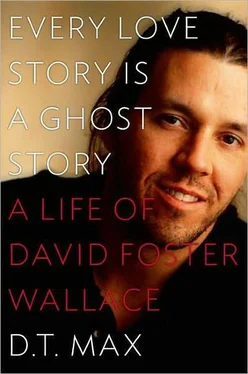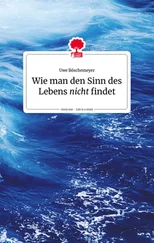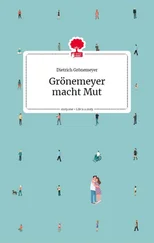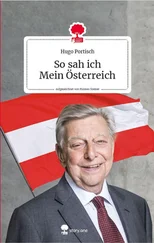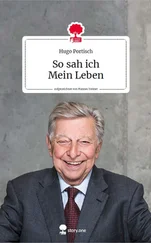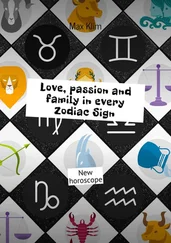Wallace had four offices to write his novel in: his black room at home, a university office (rarely visited), a room put aside for him in Francis B.’s mother’s house, and a rented space in town. 19He was usually flummoxed by his lack of progress. DeLillo, to whom he wrote in worry, reassured him that a novel was “a long march to the mountains.” He took a second yearlong leave in 2000 and spent the first half of it trying to work and seeing a lot of movies. (Movies, he liked to say, were an addict’s recreation of choice.) Then he wrote letters about the movies. DeLillo was his chosen correspondent and his opinions were anti-elitist and mildly contrarian. For instance, he saw and loved the cyberthriller The Matrix —“visually raw and kinetic and riveting in a way that only something like Bochco’s Hill Street Blues was in ’81,” he wrote his friend — and hated the acclaimed Magnolia , which he found pretentious and hollow, “100 % gradschoolish in a bad way.” That summer he went to a retreat run by the Lannan Foundation in Marfa, Texas. There Wallace spent a pleasant month. He borrowed a nearby rancher’s two golden retriever puppies to walk and turned the books by the retreat’s alumni to the wall. This was his moment to approach the novel head-on, but the writing didn’t go particularly well, at least in retrospect. To Franzen, on his return, he wrote, “Almost everything I did there will have to be thrown away, but that, too, is good, in a way.” To Rich C., he was more downbeat: “I’m scared I can’t do good work anymore.”
Wallace was ever more in demand for his nonfiction. In the fall of 1999, Rolling Stone asked him if he wanted to write about a candidate in the upcoming presidential elections and he chose John McCain, the independent-minded Republican who was opposing George W. Bush for the presidential nomination. Wallace was politically fairly conservative; he’d voted for Ronald Reagan and supported Ross Perot in 1992, telling his friend Corey Washington, “You need someone really insane to fix the economy.” He came to combine midwestern conventionality with girlfriend-pleasing campus liberalism. In 2000 he voted for Bill Bradley in the Illinois primary. In truth politics did not generally matter much to him. He did not think who won an election could change what was broken. But in McCain Wallace saw another chance to explore the hollowing out of the American character. McCain’s campaign, which prided itself on openness and truthfulness, raised two intriguingly recursive questions in his mind. Was McCain genuinely honest or just portraying himself as genuine? If the former, were Americans so steeped in the complex double-talk of advertising they could not see genuineness when it appeared? And if the latter, were they so used to being tricked that it was now its own source of pleasure?
Wallace spent a week on the campaign trail in early February 2000 and, as was his style, ignored the top-level operatives to focus on the techies and hacks in the bus that followed McCain’s bus, the Straight Talk Express, dubbed (probably by Wallace) the Bullshit 1. He exaggerated on the way to make his point. He painted the major newspaper reporters — he called them “the twelve monkeys”—as haughtier and more alike one another than they even were and pretended the McCain campaign strategist was so afraid of him he would duck around the corner to avoid encounters (in fact they got along well; the gesture was playful, as the campaign strategist told a reporter for Salon in 2010.) And did two separate reporters really mistake Wallace for a bellboy and tell him to carry their suitcases? It seemed unlikely, but all this falsity contributed to creating a portrait of Wallace as an outsider, someone who could convey a truth readers weren’t getting elsewhere, real straight talk. In the end, what Wallace wanted to capture was what
the brief weird excitement [that the campaign] generated might reveal about how millennial politics and all its packaging and marketing and strategy and media and spin and general sepsis actually makes us US voters feel, inside.
McCain’s campaign was fast folding. After he lost the primary elections of early March to Bush, Rolling Stone needed the article in a hurry. Wallace took only three weeks to write twenty-seven thousand words. The piece — cut by more than half in three days of frantic editing by phone — was in print by mid-April, a speed that Wallace found both liberating and upsetting. In the end Wallace used his unaccustomed ringside seat at American history to further preoccupations that dated back to his “E Unibus Pluram” essay. His conclusion was that McCain was America looking in the mirror. “Whether he’s truly For Real,” he ended, “depends now less on what’s in his heart than on what might be in yours.”
The article would win a National Magazine Award, but Wallace always felt his take on the “three months that tickled the prostate of the American Century,” as he called the campaign in a letter to DeLillo, was just a vacation from the novel he was supposed to be working on. “I do not know why the comparative ease and pleasure of writing nonfiction always confirms my intuition that fiction is really What I’m Supposed to Do,” he added as “The Weasel, Twelve Monkeys and the Shrub” was about to appear, “but it does, and now I’m back here flogging away (in all senses of the word) and feeding my own wastebasket, and taking half-hours off to write letters like this and still calling it Writing Time.”
In June 2000, an editor from Atlas Books approached Wallace with the idea of writing a volume on mathematics for its Great Discoveries series, which it was copublishing with Norton. Jesse Cohen suggested as subjects either Georg Cantor, a pioneer in set theory, or Kurt Gödel, who authored the incompleteness theorems, which state that no matter how much one knows about a system there is yet more to know. That knowledge has limits that are themselves the product of our knowledge was the sort of thing that Wallace never stopped thinking about. “Obvious fact,” he would later write in the book, “never before have there been so many gaping chasms between what the world seems to be and what science tells us it is.” Cantor, though, held the prospect of something even more appealing: an inquiry into a man who took on a puzzle of the sort that had always fascinated and worried Wallace — in this case, the nature of infinity. Most investigations into thinking of this sort, Wallace knew, led to paralysis, the a.p.-s’s (adolescent pot smoker’s) solipsism he always feared. Cantor though had broken through to the other side by showing that there are different sized infinities and that they can be thought about almost like ordinary numbers. He had turned a fearsome unknown into a quantity that mathematicians could manipulate. Cantor also presented the more achievable challenge. “I know [enough] about Gödel’s proof to know that the math and notations alone would take me years to get proficient at,” Wallace wrote Cohen. He added in a stern fax he sent shortly after from Marfa that if he did undertake the book it would be “on the side as a diversion from other contracted stuff.” All the same, he couldn’t resist thinking how rewarding such an effort would be:
Did you know that the implifications/ramifications of Cantor’s diagonal proof are huge, especially for contemporary computer science (e.g. “trans-computational problems,” etc.)? Did you know that it would take 500 pages even to outline these consequences and ramifications? Would the book just be a bio of Cantor and contemporaries and discuss the Proof and its context, or would you also expect a Consequences discussion?
When Cohen wrote back that the book was meant to be a book of ideas, the thrust being on “Cantor and the sheer mindbending quality of his theories,” Wallace was hooked. This was the part of him he had left by the side of the road when he became a fiction writer, the part he had tried to breathe life back into when he went to Harvard, the part that made him the smartest guy in the room. He had slid into lightweight magazine work, offering insights on porn and tennis. The information that the advance might be as high as $100,000 did not hurt either. That was a bigger advance than he had gotten for Infinite Jest . He said yes.
Читать дальше
